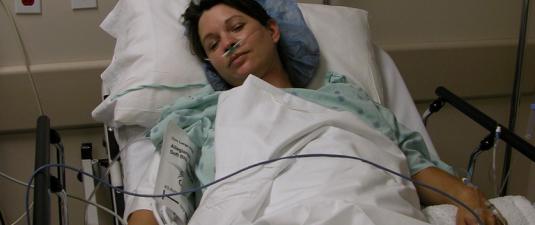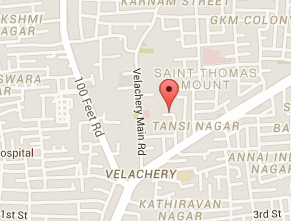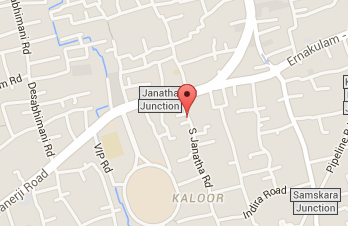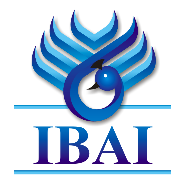FAQ regarding your Mediclaim Policy
Submitted by ciby on Thu, 03/08/2017 - 10:18

- 1. What is Mediclaim Insurance?
- Ans - MediClaim is a Insurance Cover which provides for the reimbursement of medical expenses incurred following hospitalization due to illness or accident.
- 2. What are the benefits available under the Mediclaim Policy?
- Ans - Following benefits are available under a Mediclaim Policy:
-
- Room and boarding expenses,
- Nursing expenses,
- Consultation fees to specialists, surgeon, anesthetist, medical practitioners, etc.,
- Anesthesia, blood, oxygen, operation theatre charges, surgical appliances, medicines and drugs, diagnostic material and, x-ray, dialysis, chemotherapy, radiotherapy, etc.
- 3. Is Domiciliary Treatment is covered?
- Ans - Yes. But what is covered is Domiciliary Hospitalization. That is, the treatment should be for such an illness/sickness which in the normal course would require hospitalization but taken at home due any of the following reasons:
-
- The conditions of the patient is so worse that he cannot be moved to a hospital, or
- The patient cannot be moved to the hospital or lack of accommodation in the hospital
- In any case, expenses incurred for pre and post hospitalization treatment and treatment fo diseases like, a) Asthma, b) Bronchitis, c) Chronic, d) Nephritis, e) Diarrhea and dysentery, f) Epilepsy, f) Hyper tension, g) Influenza, h) Cough Cold, etc. (See policy documents for complete list), are NOT payable under domiciliary hospitalization benefits.
- 4. Can treatment be taken at any hospital ?
- Ans - You can take treatment in any registered hospital. Under Mediclaim Policy Conditions, a hospital must have
-
- At least 15 in patient beds, (In C class towns 10)
- Qualified Doctors an Nurses round the clock
- Fully equipped operation theatre wherever surgical operations are carried out.
- Ayurvedic Hospitals satisfying the above conditions except that of operation theatre are also covered.
- 5. Is there a minimum period of hospitalization for a claim to be made under mediclaim Policy?
- Ans - Yes. Minimum 24 hours of hospitalization is a must. Under certain case like radiotherapy, laser eye surgery, dialysis, chemotherapy, etc where hospitalization is not a must the conditions of 24 hours hospitalization is waived.
- 6. Is there a waiting period or benefits can be availed immediately on taking the policy?
- Ans - Yes. There is a waiting period for 30 days for availing the benefits under the policy. There are some diseases excluded for the first year and some for the second year. (Study the policy documents carefully). This condition is stipulated to avoid people misusing the policy to cover pre-existing diseases. However, in case of accidental injuries this condition of waiting period is not applicable.
- 7. What is pre-existing diseases?
- Ans - They are diseases or illness the insured maybe suffering from at the time of taking the policy, whether the insured is aware of it or not. It is, therefore, necessary to disclose any pre-existing disease while completing the proposal form. If such disclosures are not made, but are discovered later, the Insurance Company have the option to terminate the policy.
- 8. How claims are settled?
- Ans - There are two methods of settlement:
-
- Cashless settlement through TPAs and/or directly by the companies - Under this scheme the hospitals do not insist for payment of treatment and they collect the expenses directly form the insurance companies or their TPAs. The Policy holders are usually given Photo Identity Cards to be produced at the hospitals
- Reimbursement claim settlement - Here the insurance Company does not pay directly to the hospital. The insured will have to settle the bills at the hospital and submit them to the insurance companies for reimbursement.
- 9. What is the claim procedure in case of reimbursement claim settlement?
- Ans - Notice of Claim must be given to the company within 7 days of hospitalization. Final bills and certificates along with the duly filled in ad signed claim form and must be submitted to the company within 30 days of discharge from the hospital.
- 10. What are the documents to be submitted to the insurance company in case of claim?
- Ans - Following are the documents need to be submitted;
- Bills, receipts and Discharge Certificate
- Bills, receipts of pathological tests and tests reports along with the prescription
- Bills and receipts for X-ray and diagnostic materials along with the prescription
- Surgeon's bills and receipts
- Bills and receipts for medicines and drugs purchased from outside chemists along with prescriptions
- Certificate from the Attending Doctors stating that the patient is completely cured
- 11. What are Pre and Post Hospitalization Expenses?
- Ans - Expenses incurred 30 days prior to hospitalization on consultation, medicines, tests, etc for the same illness for which hospitalization is done and up to 60 days after discharge can be claimed under mediclaim policies.
- 12. What Are TPAs?
- Ans - Third Party Administrators or TPAs are IRDA authorized intermediaries entrusted to settle the claims under health insurance policies directly to the hospitals. This arrangement offers CASHLESS FACILITY to the policy holders. The policy holder can go to the hospitals empanelled by the TPAs to avail cashless facility. Alternatively, they can go to other hospitals, not empanelled by the TPAS, and get the treatment, settle the bills, submit them to TPAs for reimbursement.
- 13. What extra benefits other than hospitalization benefits are available under mediclaim policies?
- Ans - Following benefits are also available under mediclaim policies.
-
- Cost of Health Checkup: available at the end of every four claim free years. Usually up to 1% of the sum insured.
- No Claim Bonus: 5% every year, limited to maximum 50%, is available on renewal of policy for every claim free year.
- Family discount: 10% discount is given on policies covering families consisting of husband, wife, children and dependent parents under same policy.
- 14. Will a sickness for which a claim is lodged be treated as pre-existent for future polices?
- Ans - No. If the policy is renewed in time without break in period.
- 15. To whom the benefit of the the policy will be given if the policyholder dies during treatment?
- Ans - To his/ her nominee if there is a nomination under the policy. Or to the legal heir.
- Log in to post comments






